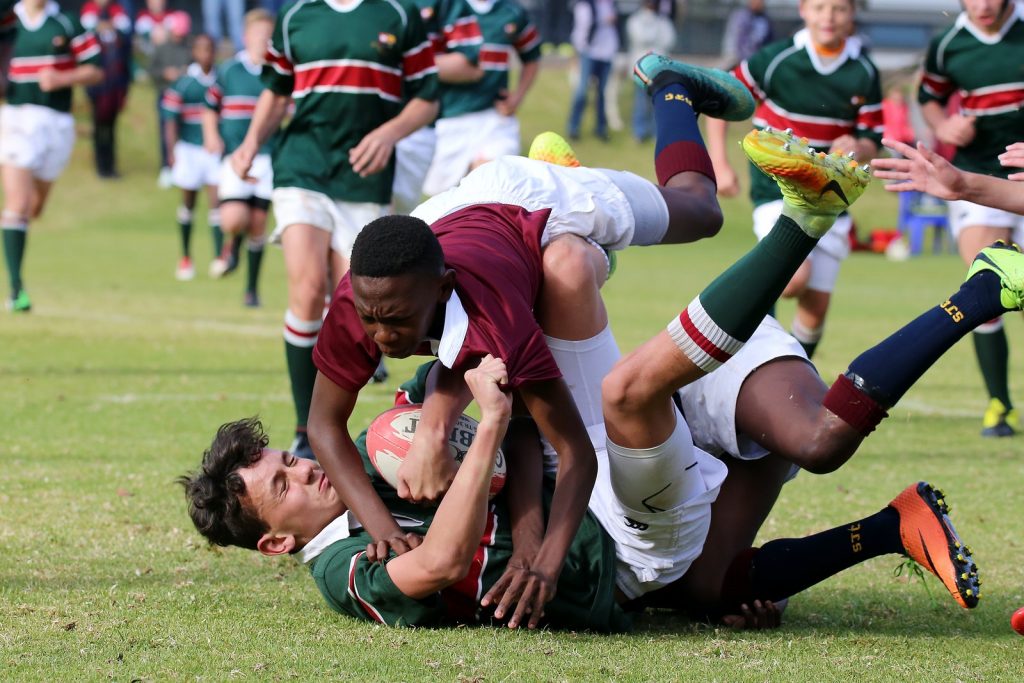World Rugby funds Canadian injury, concussion research

Posted August 3, 2022 9:19 pm.
Rugby’s world governing body has given the University of Calgary half a million dollars to study concussion and injury prevention among young women in the game.
Former university rugby player and doctoral candidate Isla Shill is a co-leader of the international study drawing data from high school and club players aged 13 to 18 in Calgary, Winnipeg, Quebec City and Vancouver.
“I wear three hats when we’re addressing this injury and concussion prevention problem,” Shill told The Canadian Press on Wednesday.
“As a previous player who has sustained her fair share of injuries and concussions from rugby, as a coach who has had to help players manage their own injuries and concussions, then from a researcher perspective to look at a more broader view and helping inform key stakeholders and helping collaborate with community stakeholders to help make meaningful change within the sport.”
Shill and study co-lead Stephen West are collaborating with British researchers at the University of Bath and Leeds Beckett University on the three-year project.
“Unfortunately, we know that the rate and burden of injury and concussion in female youth players in Canada is higher than males and this requires urgent attention for player welfare,” West said in a statement issued by the University of Calgary.
The women’s game was highlighted in World Rugby’s six-point plan for player welfare last year. The University of Calgary’s concussions team in the Sport Injury Prevention Research Centre made a grant proposal to the world governing body.
The concussions team is chaired by Carolyn Emery, a longtime researcher in the field of injury prevention in youth sport and recreation, concussion and pediatric rehabilitation.
World Rugby approved Calgary’s pitch with $500,000 in funding to develop, implement and evaluate measures to avoid injury and concussion among female youth.
Training methods, warm-ups, rule and law changes, equipment use and tackle training are among the elements under scrutiny.
Shill played five seasons for University of Calgary’s Dinos rugby team.
The 25-year-old Calgarian already has experience researching concussions and injuries in women’s rugby.
She joined other researchers working alongside Rugby Canada on a two-year study on injury and concussion rates and causes in Calgary high school rugby.
“I got brought on at the start of my master’s degree to help facilitate with pilot rugby research,” Shill explained. “In the 2018 and 2019 high school seasons here in Calgary, we did injury surveillance in male and female high school rugby players.
“I believe we just submitted the boys’ paper, but the girls’ paper is published. What we found through looking at the girls’ data over those two seasons is that the injury rates that we saw were some of the highest reported in the youth rugby literature across all contexts. The concussion rate, specifically, was the highest that’s been seen to date.”
Tackling accounted for the highest proportion of injuries among girls in the Calgary high school study.
The possibility of severe injury in women’s rugby hit home in Canada in 2013 when Ontario high school player Rowan Stringer died of second impact syndrome from multiple concussions.
Rowan’s Law, passed by the Ontario government in 2018, made concussion prevention and management measures legally binding across sport in that province.
Rugby Canada’s senior director of community rugby and development acknowledged the University of Calgary’s efforts in improving safety in the sport.
“We have worked together to advance our knowledge and understanding of concussion-related injuries in rugby across Canada,” Paul Hunter said in a statement.
“It is important that the decisions made to better our game and create safe spaces for everyone is evidence informed.”
The 2.7 million women currently playing rugby in the world represents a 28 per cent increase in registered players since 2017, according to World Rugby.
Canada is among 12 countries in the field of the women’s Rugby World Cup in New Zealand in October and November.
This report by The Canadian Press was first published Aug. 3, 2022.








